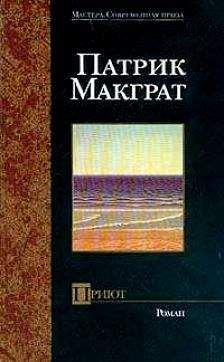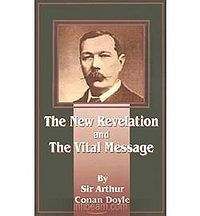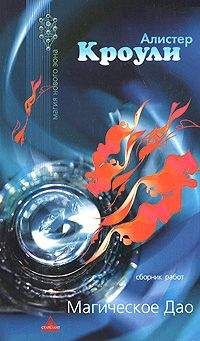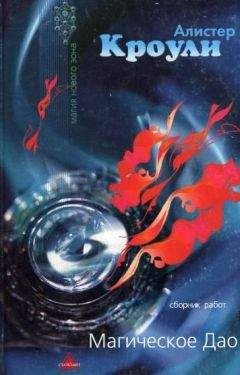Алистер Макграт - Кто изобрел Вселенную? Страсти по божественной частице в адронном коллайдере и другие истории о науке, вере и сотворении мира
Мы – люди и поэтому вольны выбирать свои собственные истории о смысле и имеем право восставать против нарративов, которые нас ограничивают и стесняют, если их навязывает культура. В наши дни считается, что устаревший нарратив конфликта науки и религии исторически не обоснован и идеологически ангажирован. Его чары развеялись. Пора двигаться дальше, пора перенимать более удачный подход, например, нарратив взаимного обогащения, о котором повествует эта книга.
Нарратив взаимного обогащения веры и науки уважает обе стороны диалога, признавая при этом, что переплетение этих тем дает нам более глубокое понимание природы всего того, чему мы придаем значение в жизни. Мы не собираемся выдумывать Вселенную – мы просто хотим разведать пласты красоты и смысла, которые уже заложены в нашей Вселенной, но которые легко упустить, если ограничиваться одной традицией исследований, одной картой реальности.
Всем нам нужен более масштабный нарратив, чтобы видеть смысл в своей жизни и в своем мире, нарратив, в котором естественным образом переплетается множество других нарративов, уровней и карт и который дает нам более адекватную картину реальности. Реальность так сложна, что с ней невозможно взаимодействовать и в ней невозможно жить, если опираешься только на одну традицию исследований. Несмотря на все свои недостатки, эта книга стремится сыграть роль «собеседника с более сложным сознанием», о котором писал Борхес, и цель ее – направить диалог культур в сторону, выгодную для всех участников.
Если мы хотим жить полной, осмысленной жизнью в своей реальности, нам необходимо приложить все усилия, чтобы составить самую лучшую картину мира[405]. Зачем довольствоваться монохромной картиной, когда обогащенный нарратив позволяет разглядеть всю палитру цветов и в полной мере оценить ее? Обогащенное мировоззрение дает «картину в целом», которая не просто обеспечивает когнитивное функционирование, но и удовлетворяет экзистенциальные потребности. Это мировоззрение, которое позволит нам жить, а не просто существовать.
Дополнительная литература
Для дальнейшего изучения тем, рассмотренных в девяти главах этой книги, читателю рекомендуется познакомиться со следующими трудами.
Общие вопросы
Brooke, John Hedley, «Science and Religion: Some Historical Perspectives». Cambridge: Cambridge University Press, 2014.
Dixon, Thomas, «Science and Religion: A Very Short Introduction». Oxford: Oxford University Press, 2008.
Ferngren, Gary B., «Science and Religion: A Historical Introduction». Baltimore, MD: Johns Hopkins University Press, 2002.
McGrath, Alister E., «Science and Religion: An Introduction». 2nd ed. Oxford: Blackwell, 2011.
Ruse, Michael, «Science and Spirituality: Making Room for Faith in the Age of Science». Cambridge: Cambridge University Press, 2014.
Sacks, Jonathan, «The Great Partnership: God, Science and the Search for Meaning». London: Hodder & Stoughton, 2011.
Stump, J. B. and Alan G. Padgett (eds.), «The Blackwell Companion to Science and Christianity». Oxford: Wiley-Blackwell, 2012.
Глава 1
Coulson, C. A., «Science and Christian Belief». London: Oxford University Press, 1955.
Harrison, Peter, «The Territories of Science and Religion». Chicago: University of Chicago Press, 2015.
Medawar, Peter, «The Limits of Science». Oxford: Oxford University Press, 1987.
Numbers, Ronald L. (ed.), «Galileo Goes to Jail and Other Myths about Science and Religion». Cambridge, MA: Harvard University Press, 2009.
Глава 2
Dear, Peter R., «The Intelligibility of Nature: How Science Makes Sense of the World». Chicago: University of Chicago Press, 2008.
Hannam, James, «God’s Philosophers: How the Medieval World Laid the Foundations of Modern Science». London: Icon, 2010.
Midgley, Mary, «Evolution as a Religion: Strange Hopes and Stranger Fears». 2nd ed. London: Routledge, 2002.
Ward, Keith, «More than Matter: Is Matter All We Really Are?» Oxford: Lion Hudson, 2010.
Глава 3
Gauch, Hugh G., «Scientific Method in Practice». New York: Cambridge University Press, 2003.
Kuhn, Thomas S., «The Copernican Revolution». New York: Random House, 1959.
McGrath, Alister E., «Surprised by Meaning: Science, Faith, and How We Make Sense of Things». Louisville, KY: Westminster John Knox Press, 2011.
Numbers, Ronald L. (ed.), «Galileo Goes to Jail and Other Myths about Science and Religion». Cambridge, MA: Harvard University Press, 2009.
Глава 4
Gingerich, Owen, «God’s Universe». Cambridge, MA: Harvard University Press, 2006.
Kragh, Helge, «Conceptions of Cosmos: From Myths to the Accelerating Universe: A History of Cosmology». Oxford: Oxford University Press, 2007.
McGrath, Alister E., «A Fine-Tuned Universe: The Quest for God in Science and Theology». Louisville, KY: Westminster John Knox Press, 2009.
McLeish, Tom, «Faith and Wisdom in Science». Oxford: Oxford University Press, 2014.
Polkinghorne, John, «Science and Creation: The Search for Understanding». London: SPCK, 1988.
Глава 5
Alexander, Denis, «Creation or Evolution: Do We Have to Choose?». 2nd ed. Oxford: Monarch Books, 2014.
Brooke, John Hedley, «Science and Religion: Some Historical Perspectives». Cambridge: Cambridge University Press, 2014.
Collins, Francis S., «The Language of God: A Scientist Presents Evidence for Belief». New York: Free Press, 2006.
McGrath, Alister E., «Dawkins’ God: From the Selfish Gene to the God Delusion». 2nd ed. Oxford: Wiley-Blackwell, 2015.
Глава 6
Brown, Warren S., Nancey C. Murphy, H. Newton Malony (eds.), «Whatever Happened to the Soul? Scientific and Theological Portraits of Human Nature». Minneapolis: Fortress Press, 1998.
Feingold, Lawrence, «The Natural Desire to See God According to St. Thomas and His Interpreters». Rome: Apollinare Studi, 2001.
Smith, Christian, «Moral, Believing Animals: Human Personhood and Culture». Oxford: Oxford University Press, 2009.
Wiley, Tatha, «Original Sin: Origins, Developments, Contemporary Meaning». New York: Paulist Press, 2002.
Глава 7
Baumeister, Roy F., «Meanings of Life». New York: Guilford Press, 1991.
Frankl, Viktor E., «Man’s Search for Meaning». New York: Simon and Schuster, 1963.
Hicks, Joshua A., Clay Routledge (eds.), «The Experience of Meaning in Life: Classical Perspectives, Emerging Themes, and Controversies». New York: Springer, 2013.
Seligman, Martin, «Flourish: A Visionary New Understanding of Happiness and Well-Being». New York: Simon & Schuster, 2011.
Глава 8
MacIntyre, Alasdair, «After Virtue: A Study in Moral Theory». 3nd ed. Notre Dame, IN: University of Notre Dame Press, 2007.
Murdoch, Iris, «The Sovereignty of Good». London: Macmillan, 1970.
Sandel, Michael, «Justice: What’s the Right Thing To Do?» London: Penguin Books, 2010.
Taylor, Charles, «A Secular Age». Cambridge, MA: Belknap Press, 2007.
Глава 9
Harrison, Peter, «The Territories of Science and Religion». Chicago: University of Chicago Press, 2015.
Sagan, Carl, «Pale Blue Dot: A Vision of the Human Future in Space». London: Headline, 1995.
Smith, Christian, «Moral, Believing Animals: Human Personhood and Culture». Oxford: Oxford University Press, 2009.
Steane, Andrew, «Faithful to Science: The Role of Science in Religion». Oxford: Oxford University Press, 2014.
Примечания
1
Albert Einstein, «Religion and Science». В кн.: «Ideas and Opinions», New York: Crown Publishers, 1954, р. 38.
2
Johann Peter Eckermann, «Gespräche mit Goethe in den letzten Jahren seines Lehens», 3 vols, Leipzig: EA. Brockhaus, 1836, vol. 2, p. 50.
3
Aristotle, «Metaphysics», 982b. См. также Plato, «Theaetetus», 154b – 155c. Познавательные рассуждения на ту же тему можно найти в статье Jerome Miller, «In the Throe of Wonder», Albany: State University of New York Press, 1992, pp. 11–52.
4
Thomas Aquinas, «Summa Theologiae Iallae» q. 32, a. 8. Обсуждение этой темы см. в работе Reinhard Hütter, «Dust Bound for Heaven: Explorations in the Theology of Thomas Aquinas», Grand Rapids, MI: Eerdmans, 2012, pp. 244–6.
5
Peter Medawar, «The Limits of Science», Oxford: Oxford University Press, 1987, p. 66.
6
José Ortega y Gasset, «El origen deportivo del estado», «Citius, Altius, Fortius» 9, no. 1–4, 1967, pp. 259–76; цит. на p. 259.
7
John Dewey, «The Quest for Certainty», New York: Capricorn Books, 1960, p. 255.
8
О мудрости см. William G. Compton, Edward Hoffman, «Positive Psychology: The Science of Happiness», 2nd ed., Belmont, CA: Wadsworth, 2013, pp. 199–228.
9
C. S. Lewis, «Essay Collection», London: HarperCollins, 2002, p. 21. Подробнее об этом см. Alister E. McGrath, «The Privileging of Vision: Lewis’s Metaphors of Light, Sun, and Sight», в кн. «The Intellectual World of C. S. Lewis», Oxford: Wiley-Blackwell, 2013, pp. 83–104.
10
Письмо Л. Т. Даффу от 10 мая 1943 года, цит. по «The Letters of Dorothy L. Sayers», Volume II, 1937 to 1943, ed. Barbara Reynolds, New York: St Martin’s Press, 1996, p. 401.
11
Письмо Уильяму Темплу, архиепископу Кентерберийскому, от 7 сентября 1943 года, Ibid., p. 429.
12
Salman Rushdie, «Is Nothing Sacred?», The Herbert Read Memorial Lecture 1990, Cambridge: Granta, 1990, p. 8.
13
Альберт Эйнштейн, письмо к Генриху Цангеру от 10 марта 1914 года. Цит. по: Martin J. Klein, A. J. Kox and Robert Schulmann (eds), «The Collected Papers of Alhert Einstein», Volume 5: The Swiss Years: Correspondence, 1902–1914, Princeton, NJ: Princeton University Press, 1993, p. 381.
14
Eugene Wigner, «The Unreasonable Effectiveness of Mathematics», «Communications on Pure and Applied Mathematics» 13, 1960, рр. 1–14.
15
C. A. Coulson, «Science and Christian Belief», London: Oxford University Press, 1955, pp. 19–20.
16
Ibid., pp. 97–102.
17
Впоследствии я обнаружил похожие аргументы у сэра Питера Медавара в его знаменитой Роменсовской лекции, которую он прочитал в Оксфорде. Peter Medawar, «Science and Literature», Encounter, January 1969, pp. 15–23.




